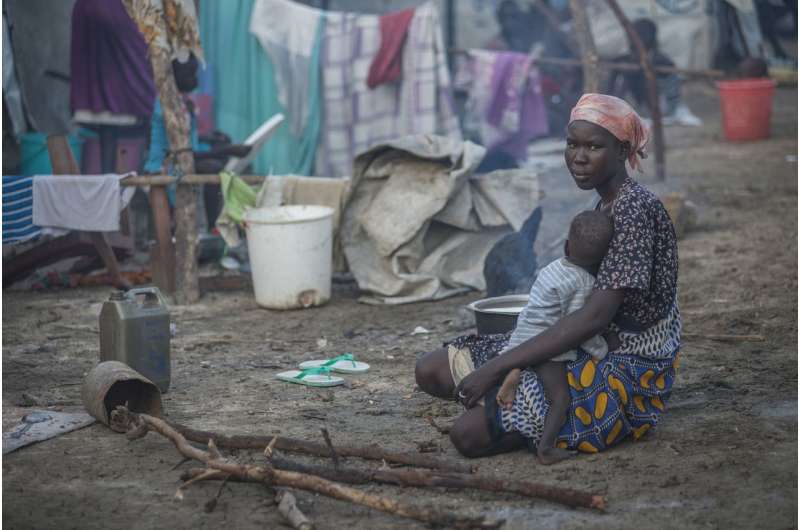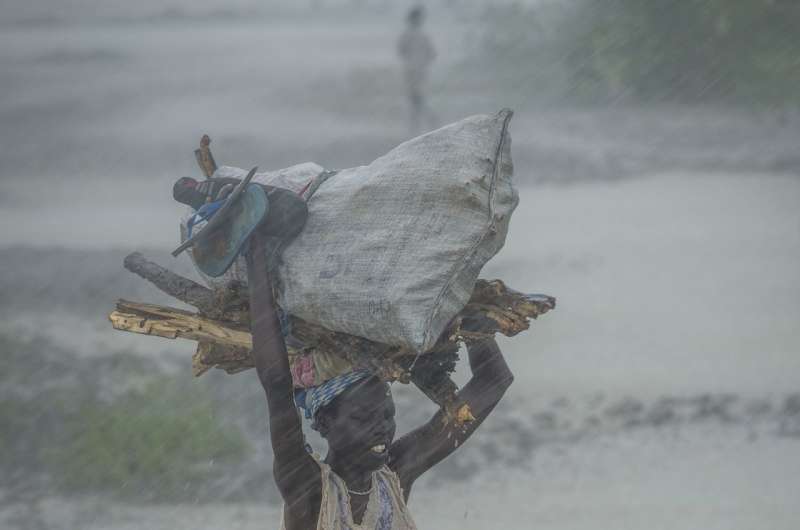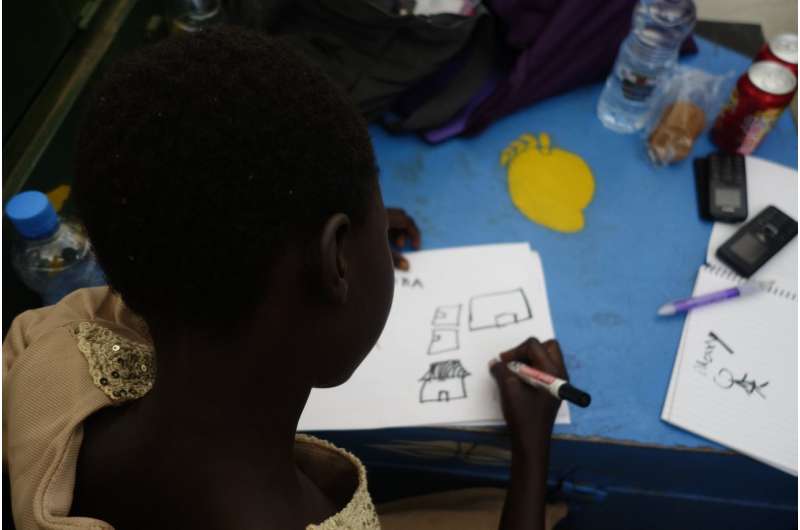Levels of violence against women and girls in south Sudan among the highest in the world

Armed conflict and displacement intensifies violence perpetrated against women and girls in South Sudan, a new UK aid-funded study released today by the International Rescue Committee (IRC) and the George Washington University's (GW) Global Women's Institute (GWI) reveals. Up to 65 percent of those interviewed had experienced either sexual or physical violence in their lifetime by an intimate partner or a non-partner, double the global average and among the highest levels of violence against women and girls in the world.
The most common form of violence reported was abuse within the home, committed by husbands or partners. Over half of the women who had ever had an intimate partner reported domestic violence, whether physical or sexual. In Rumbek, a rural town away from the capital of Juba, this figure rose to 73 percent.
However, up to 33 percent of the women surveyed had experienced sexual violence from a non-partner, with many incidents directly related to a raid, displacement or abduction. Conflict serves to exacerbate an already widespread problem, which is shrouded in a veil of silence.
Women and girls who live in Juba Protection of Civilian (PoC) sites are the most vulnerable to this type of assault. Almost a quarter of women who experienced this violence reported that they experienced multiple incidents. According to a woman living in the Bentiu PoC site; "When women go out at night [to the distribution point] to be the first in line, men were sleeping down and waiting for us. They surrounded us. They have guns, knives, sticks and pangas [machetes]."
This new evidence reveals the shocking scale of violence against women and girls in South Sudan with abuse starting early and continuing throughout much of women's adult lives. David Miliband, President and CEO of the International Rescue Committee, said: "This important research shows that we need to rethink the threats that women and girls face in conflict zones. Not only are they at risk of attack from armed men and gangs but, tragically, they are at risk within their own homes, from partners and family members."

UK International Development Secretary, Penny Mordaunt, said: "This ground-breaking research shows the shocking magnitude, frequency and brutality of the violence that women and girls suffer in crises, often at the hands of their own partners.
"The UK is stepping up its leadership to address the root causes of this unacceptable crime and to eliminate all forms of violence against women and girls. This is why I announced a new package of support this week that is expected to help 750,000 survivors in some of the world's poorest countries to overcome the trauma of abuse as well as help to stop the cycles of violence."
Negative attitudes towards gender equality, including the acceptance of violence against women, were found in all sites of the study. Long-standing discriminatory practices, such as forced and/or early marriage, polygamy and bride price – the custom of 'paying' the bride's family, often in the form of cows, to marry a girl - have created an environment where violence against women and girls is common and accepted.
"While our research results demonstrate the deep challenges to reducing violence against women and girls in South Sudan, these data are critical to measure progress in the future," said Mary Ellsberg, director of the GW's Global Women's Institute and leader of the study. "If there is ever going to be long-term peace in South Sudan, violence against women and girls must be addressed, and women must have a seat at the table in finding solutions."
Women reported increased frequency of assaults by partners in times of conflict, indicating that experiences of displacement and increases in crime contribute to the normalization of violence.

Around half of the women who had experienced violence did not tell anyone or seek medical or psychological help, owing to a combination of cultural stigma and extremely limited access to services. A breakdown in the rule of law has meant that violence is committed with impunity and often without consequence for the perpetrators. The culture of shame, around rape in particular, is so severe that many women fear reporting the crime could lead to further repercussions, such as being forced to marry their rapist.
The report lays plain the urgent need for humanitarian efforts not only to provide direct services for victims but, crucially, to address the root causes and drivers of domestic and community-level violence and ensure that prevention and empowerment efforts can address deeper long-standing attitudes that perpetuate existing cycles of abuse.
Dr. Ellsberg added: "It is essential that specialized programs to protect women and girls from violence during conflict, especially within their own homes, are prioritized from the earliest stages of a crisis."
"Thanks to funding from the UK's Department for International Development as part of its flagship What Works to Prevent Violence Program, this report now provides a roadmap for donors, policymakers and aid agencies on how to achieve this."
More information: Read the summary report here: rescue.app.box.com/s/lno77i71n … sytjgq1ghu6t84spqlxv














